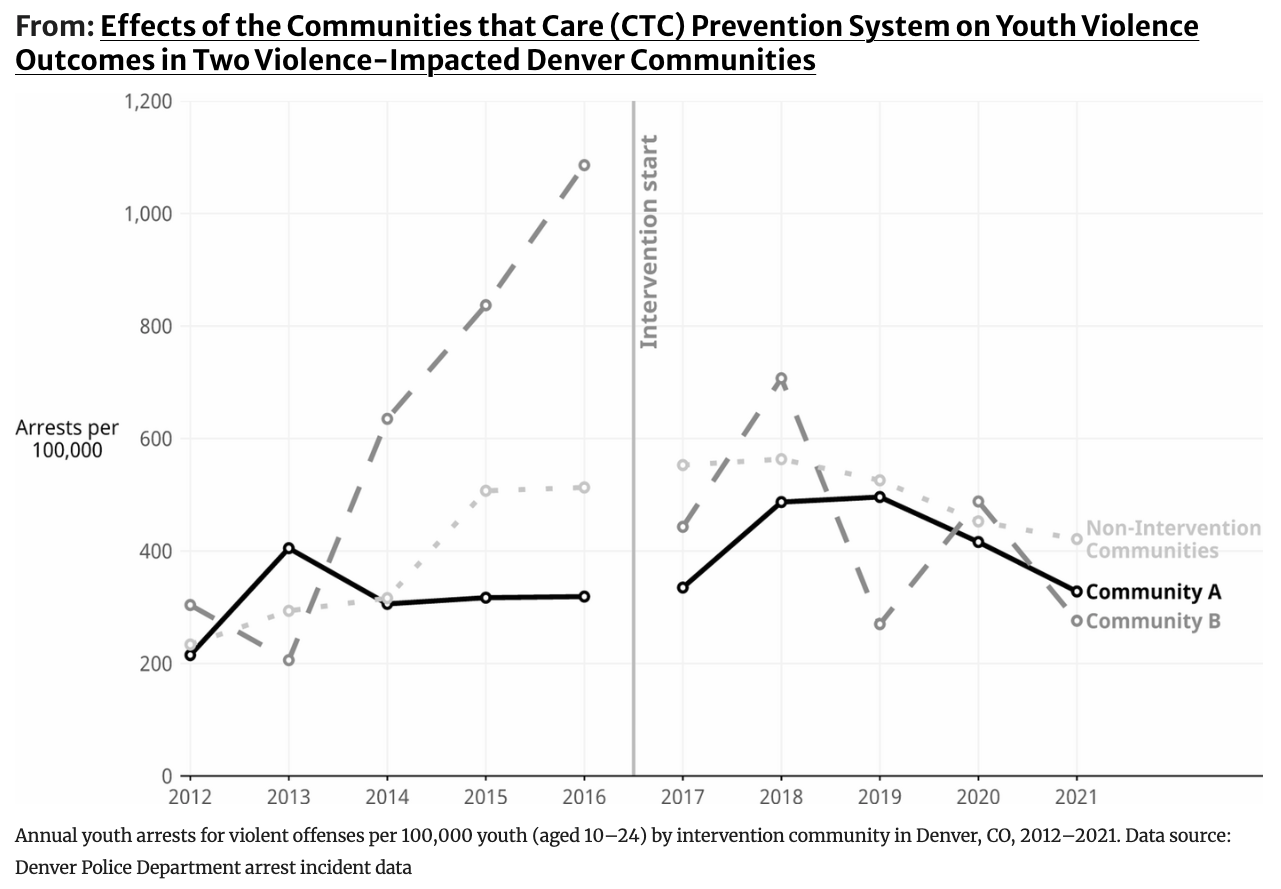
tzahiV/iStock

Audio By Carbonatix
One Denver neighborhood saw a 75 percent reduction in youth arrests for violent crime in five years, compared to an 18 percent reduction citywide, according to a new study.
Northeast Park Hill had an annual arrest rate of 1,086 per 100,000 people in 2016 for suspects aged ten to 24 accused of committing murder, assault, robbery and other violent offenses. By 2021, it plummeted to 276 per 100,000 people, researchers with the University of Colorado Boulder announced on August 12.
That change brought Northeast Park Hill’s youth arrest rate from more than double the city average in 2016 (513 per 100,000), to significantly below the city average in 2021 (421 per 100,000). Researchers believe the primary reason for the neighborhood’s success is community programming led by the Youth Violence Prevention Center.
“The data speaks volumes,” Beverly Kingston, director of the Center for the Study and Prevention of Violence at CU Boulder, says in a statement. “We’ve seen firsthand how strategic, community-driven prevention efforts can transform neighborhoods.”
The Youth Violence Prevention Center began working with community organizations in Montbello and Park Hill in 2011, after the neighborhoods were flagged by Denver’s Crime Prevention and Control Commission for being at elevated risk of youth violence and gang involvement.
The center says it has partnered with local schools, faith groups and sports organizations to train more than 3,000 children and teens on how to handle anger and peacefully resolve conflict. In addition, the center developed screenings to connect kids with help if they’re at high risk of committing violence, provided mini-grants to local teen mentorship groups, and created a youth-led social campaign promoting the anti-violence effort.
These intervention efforts began in Montbello in 2011, and in Northeast Park Hill in 2016. Montbello’s annual youth arrest rates for violent crime remained below the city average each year from 2014 through 2021, according to the new study.
Numbers for youth crime in Denver after 2021 were not immediately available. Westword has reached out to the Denver Police Department for updated statistics.

Montbello (Community A) and Northeast Park Hill (Community B), compared to the average rates across 74 other Denver neighborhoods.
American Journal of Criminal Justice
Youth Violence Prevention Center in Jeopardy
This progress is now at risk as proposed federal funding cuts could force the center to close as early as next month.
Denver’s Youth Violence Prevention Center is one of five current university-community partnerships funded by the Centers for Disease Control and Prevention (CDC), with the goal of researching and preventing youth violence. The federal initiative began in 2000, in the wake of Colorado’s 1999 Columbine High School massacre. The other projects are located in Louisiana, Michigan, Missouri and Virginia.
President Donald Trump’s administration is reportedly blocking funding for numerous CDC programs, including the youth violence prevention projects. This comes as the White House proposed cutting the CDC’s budget by more than half next year. In April, Trump’s Health Secretary Robert F. Kennedy Jr. laid off 2,400 CDC employees, though around 700 were later rehired.
“Losing this funding would be devastating,” Kingston said. “Not just for Denver, but for communities nationwide looking to replicate this success.”
The Denver project was expecting to receive $1.2 million at the end of September, as the final year of funding in its current five-year grant cycle, according to the center.
Without the money, Kingston says it would be “impossible” to continue the center or to fully measure the program’s long-term impact to share with other cities struggling with youth violence.
For now, the future is uncertain. A Senate committee went against the Trump administration’s proposed funding cuts on July 31, voting to keep CDC funding near its current level. However, that is only one step in a long appropriations process.
The new fiscal year begins on October 1, at which point the federal budget is supposed to be finalized.